I always seem to meet really fascinating people on my tours. Yesterday was no different and I met 13 people from America, Israel, Ireland, Scotland, and Russia.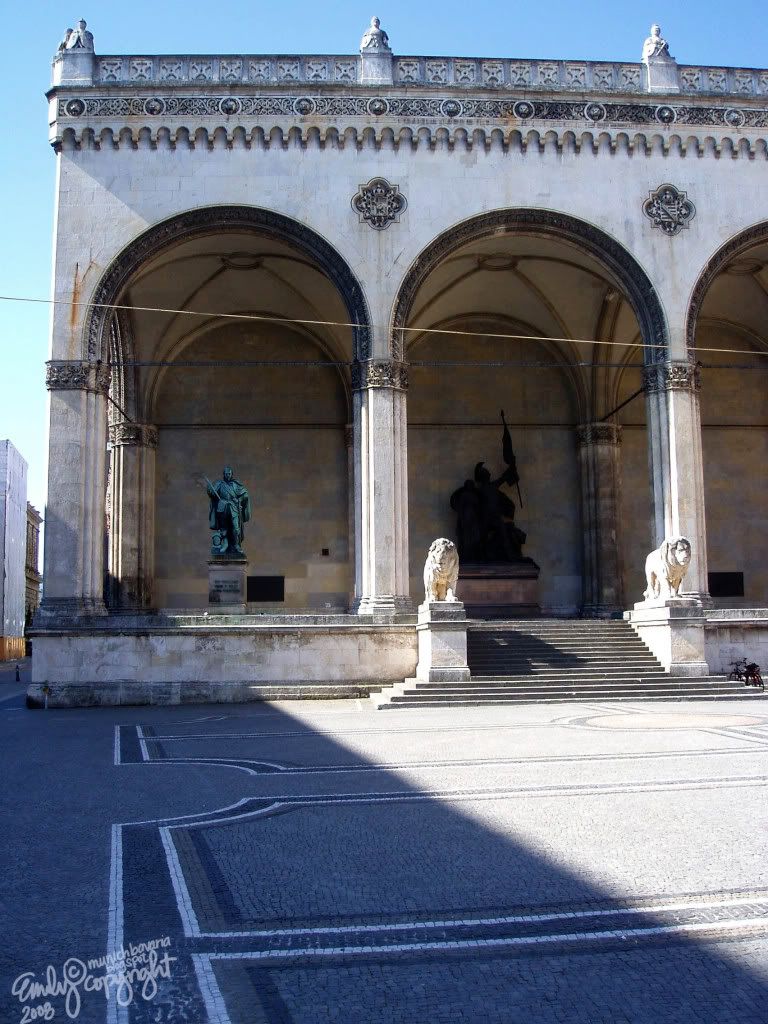 During the train ride to Salzburg people typically want to talk and learn more about why I am in Germany and my perceptions of things here. After everyone got settled I sat down and then the man from Israel came to sit with me. He had planned his trip to Munich for a couple of years and he had a very structured plan. He had come to see the buildings that played a critical role in Germany's dark past - the Third Reich.
During the train ride to Salzburg people typically want to talk and learn more about why I am in Germany and my perceptions of things here. After everyone got settled I sat down and then the man from Israel came to sit with me. He had planned his trip to Munich for a couple of years and he had a very structured plan. He had come to see the buildings that played a critical role in Germany's dark past - the Third Reich.
While there are tours that cater to this type of thing, they don't go into nearly as much detail as he did. I really started to consider the things that he was saying. First, he felt that Munich had not done enough to designate what happened where. He continually said that if the history is forgotten he fears that it could happen again or that people will say it never happened.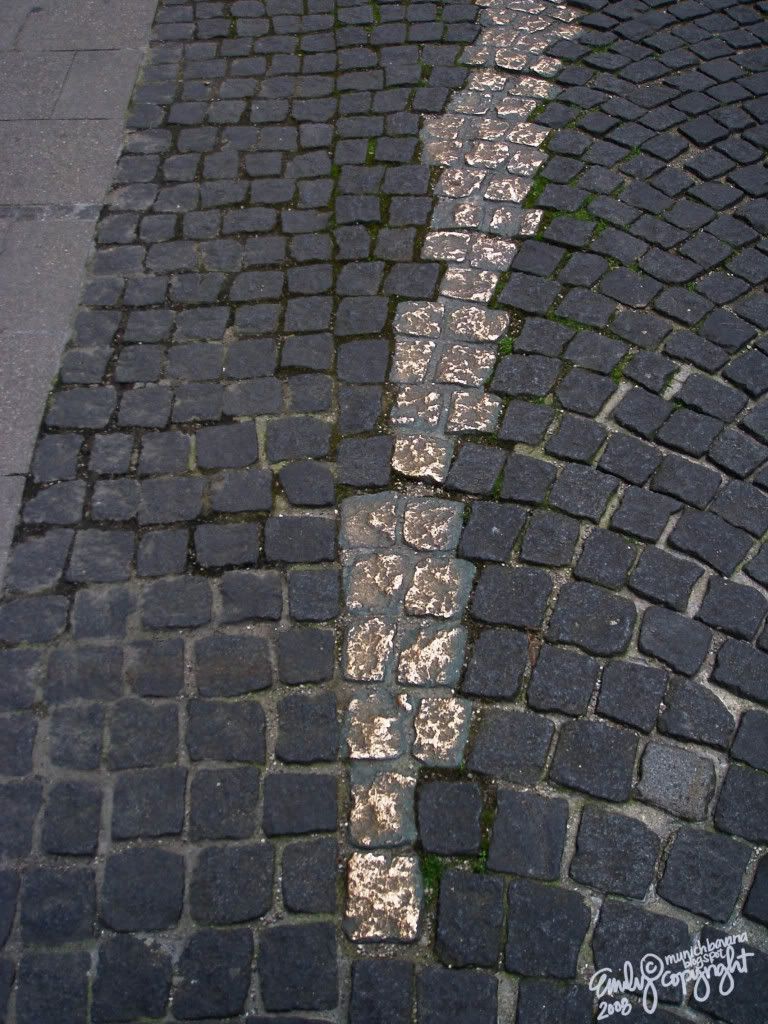 There are no signs denoting where Hitler and his associates lived. I can understand that it's a fine line for Germany - they don't want to publicize places for neo-nazi types, but in some regards there are places that are easily overlooked, like Dodger's Alley on Drückebergergasse. This alley was used by people who did not want to give the nazi salute before entering Odeonsplatz. And at the university the bronzed leaflets from the White Rose movement could also be easily overlooked. I tried to tell him of places that I knew around the city that he had not yet visited, like Dodger's Alley.
There are no signs denoting where Hitler and his associates lived. I can understand that it's a fine line for Germany - they don't want to publicize places for neo-nazi types, but in some regards there are places that are easily overlooked, like Dodger's Alley on Drückebergergasse. This alley was used by people who did not want to give the nazi salute before entering Odeonsplatz. And at the university the bronzed leaflets from the White Rose movement could also be easily overlooked. I tried to tell him of places that I knew around the city that he had not yet visited, like Dodger's Alley.
Even though his parents are Egyptian he feels a strong connection to the Holocaust. I definitely like to notice the happier times of Munich, however I do know this dark cloud looms over the city.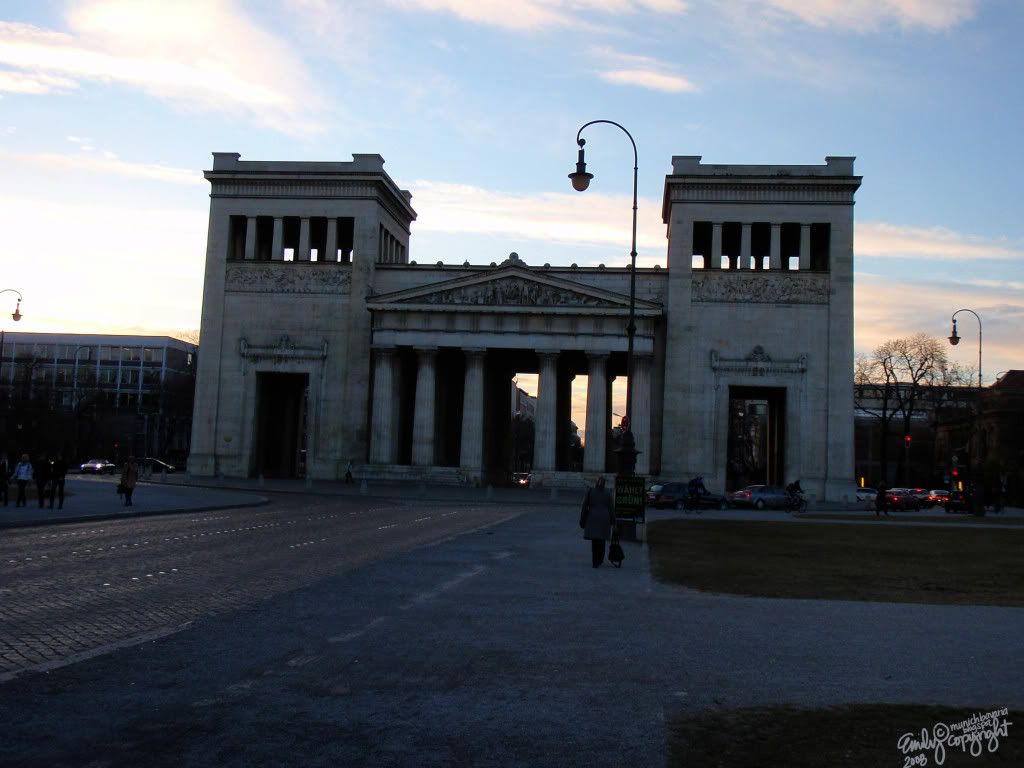 He repeatedly told me he wasn't here to blame the people and that he realizes the people three generations later aren't responsible for the atrocities. What surprised him most was that once he arrived to Prinzregentenplatz he asked people passing by which house was Hitler's and no one could answer, so he stopped at the police station to ask and discovered that was the house at Prinzregentenplatz 16. He also obtained special permission to look at the bunker underneath and showed me his photos.
He repeatedly told me he wasn't here to blame the people and that he realizes the people three generations later aren't responsible for the atrocities. What surprised him most was that once he arrived to Prinzregentenplatz he asked people passing by which house was Hitler's and no one could answer, so he stopped at the police station to ask and discovered that was the house at Prinzregentenplatz 16. He also obtained special permission to look at the bunker underneath and showed me his photos.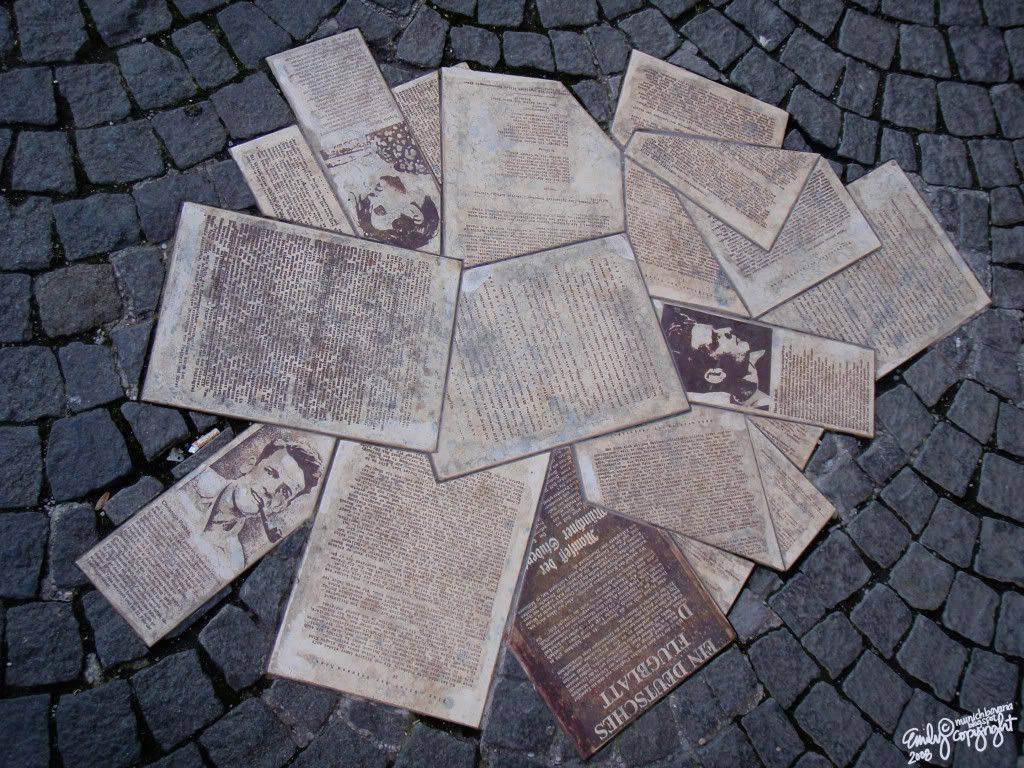 As we were talking there were some interesting things to consider. What happened to the property - who lives in these homes now? Was it passed down within families? Is some of Munich's current wealth because of the wealth of the National Socialism party?
As we were talking there were some interesting things to consider. What happened to the property - who lives in these homes now? Was it passed down within families? Is some of Munich's current wealth because of the wealth of the National Socialism party?
I will fully admit that I know there are places that I often pass that played a crucial role in the Third Reich movement. I think it's a hard reality for people to face, which is part of the reason Germans seem to lack patriotism - you rarely see flags flying. It's obviously a sensitive topic.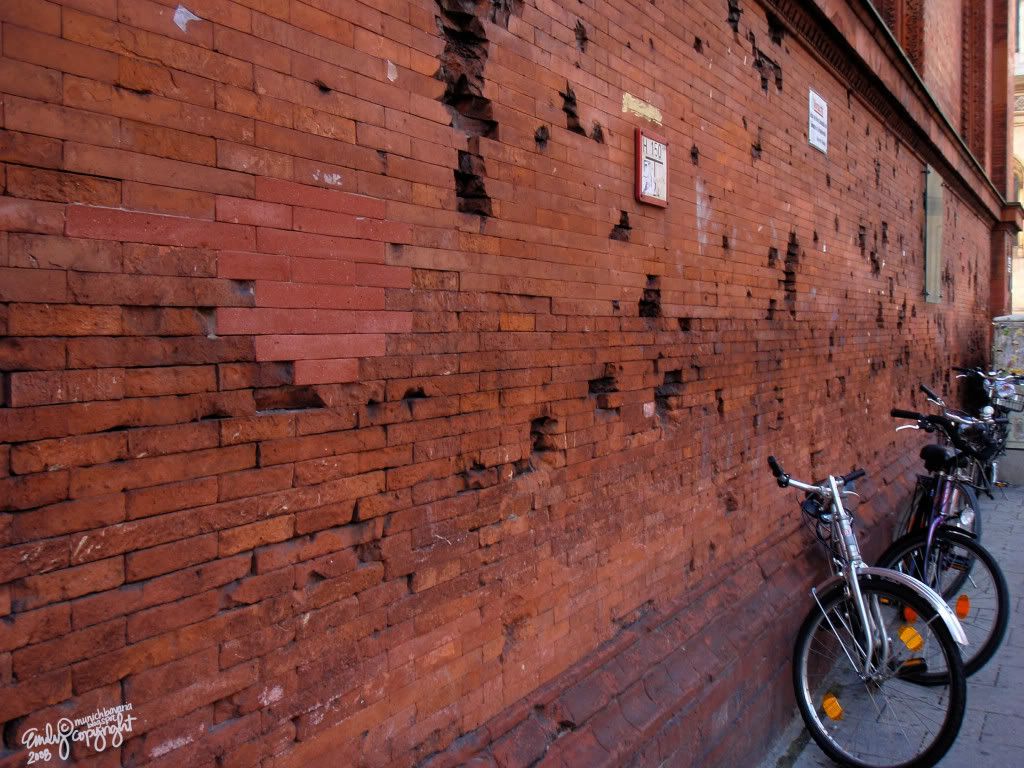 When I met Johanna, the friend of the visiting German professor, we were talking and surprisingly she brought it up. She said when she was a young girl and people were very destitute and hungry that they viewed Hitler as their bread and butter. He was creating jobs for people like her father, who went to Berlin to pave streets for the autobahn. Little did they know he had ulterior plan.
When I met Johanna, the friend of the visiting German professor, we were talking and surprisingly she brought it up. She said when she was a young girl and people were very destitute and hungry that they viewed Hitler as their bread and butter. He was creating jobs for people like her father, who went to Berlin to pave streets for the autobahn. Little did they know he had ulterior plan. The train ride back from Salzburg consisted of a lot of discussion regarding the state of the world and the upcoming election.
The train ride back from Salzburg consisted of a lot of discussion regarding the state of the world and the upcoming election.
I really appreciate being able to interact with people from around the world and learn about their views and reasoning. Every day is something new, occasionally exciting, and eye opening.
I love learning from other people's life experiences, although I wish there weren't so many tragic events to learn from.
Thursday, October 30, 2008
Dark Past
Subscribe to:
Post Comments (Atom)








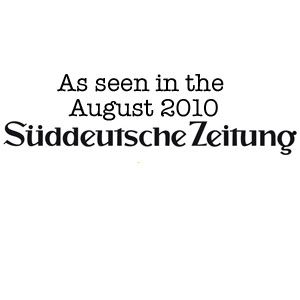
6 comments:
I think maybe Germans are ashamed of what they did, so they tried to silence the horrible historical event.
The gentleman form Israel was right. Berlin springs to mind when reflecting on the horror of WWII, but the role Munich played seldom earns attention.
But it was here, amongst Bavarians, that Germans found they could stomach atrocities committed against fellow human beings, and even develop a taste for them. In Munich, evil first became banal, to use Hannah Arendt's famous phrase.
As a new Münchener, I find the story of our city between the wars both inherently fascinating and morally instructive.
By the way, a great resource for this discussion is Past Finder Munich.
http://www.amazon.co.uk/Past-Finder-1933-1945-Guidebook-Pastfinder/dp/386153410X
There's a series which includes both Berlin and Obersalzburg
bluefish...
There is definitely a sense of shame, however I think the Germans aren't entirely certain how to respond or what their next role in acknowledging things should be. I truly hope the remembrance isn't something that fades with time.
headbang8...
Thank you for your recommendation. I just read this week about the findings of artifacts from the Kristallnacht in Berlin. We can only hope these reminders continue to bring things to light - even if it's way overdue. There is so much history on the streets of Munich.
@bluefish:
Maybe just some words as a german (and I can only speak for me as person) on that difficult subject. For sure my ability to express myself in english is way to small to cover such a subject always with the adequate words. So I beg your pardon in advance, if some of the phrases seem inappropriate. The intention ist to explain, not to offend.
Am I ashamed of what 'we' did? Sure, there is a portion of shame included. But shame is clearly not the main emotion.
Let me take a short detour. I think it has a good deal to do how you define yourself. I'm human, I'm a man, I'm white, I'm catholic,.... (it's an endless list). And ... I'm german.
For every of those definitions there are things, I am ashamed. As a human, I'm ashamed how we
destroy our planet and all nonhuman life, as a man I am ashamed what terrible things are done by men to women. As being white I'm ashamed of the attitude of feeling superior to others based only on the color of the skin, as catholic, I'm ashamed of the crusades and the burning of witches.
But is shame my foremost emotion for all those things? No. My dominating emotion is: Be aware and do everything possible, to ensure those things will not be done by you, in your name, in your zone of influence.
And as a german? Clearly I'm ashamed for what was done by germans and in the name of germany, certainly the dimension, cruelty and inhumanity shocks me deeply. But as I said before, shame is clearly not the main emotion. The best way I would describe it is: An obligation to be aware.
Emily is completly right, that "we" are unsure of how to respond or what is our role. How could'nt we? Because I don't think there is one simple "right" way. Only one thing is for sure: We must not forget! And I don't think we are trying silence our past, bluefish.
One simply turn the whole country into a giant "museum", marking almost every building, place and field. But what good would that be? Maybe it would impress that sort of tourists, that come here with the expectation to enter a "drittes Reich"-Muesuem. But for those who live here, I think it would have almost the opposit effect. If somethings is omnipresent all to soon it becomes marginal. And really the last thing I would want for keeping the remembrance alive would be "decorating" the country by especially marking all places where Hitler and his pack, were born, lived, etc.
For me, remembrance is a question of really affecting people in a way that works, even if they live here. And for that, I prefer projects like "Stolperstein" (= a stone you stumble over). I personaly "stumbled" over some of those markings, while being busy with complete ordinary things. Suddenly you find yourself staring at a house, where a complete jewish family was imprisoned and murdered. And knowing that place, helps me more to remember than the knowledge of hitlers birthplace would.
But that's a real complex subject. Everyone has his own expectations and feelings. I'm just asking you, not to confuse the absence of (enough) explicite signs of your liking with the intention to forget.
Joachim...
Thank you for such a thoughtful and eloquent response.
I only recently learned about the Stolperstein and believe Munich could benefit from this project. It seems easy for people to group each other into categories and not to consider the humanness we all share.
There is also something to be said about Germany creating monuments to its victims. That is not something other countries have done.
I really appreciate your comment.
Post a Comment